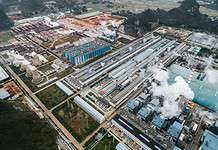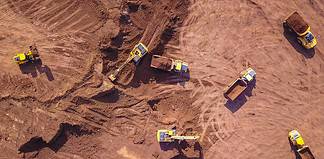BHP (ASX: BHP) has signed four new clean energy contracts for power at its Escondida and Spence copper mines in Chile as it continues its push toward 100pc renewable power in the mid 2020’s.
While the company will cop US$780m in cancellation fees for dropping coal contracts, it said that it would be value-accretive in the long term.
The transition came as the result of separate tenders for both Escondida and Spence, with BHP signing on for two separate 15-year contracts for 3TW hours per year, and 10-year contracts for 3TW hours per year with ENEL Generacion Chile and Colbun respectively.
BHP said that the contracts would reduce energy prices at the mines by about 20pc, provide operations flexibility and security of supply, and strengthen its ability to deliver copper across the supply chain.
It comes as BHP continues to emphasise the importance of social value as investors continue to demand action on decarbonisation across the value chain.
BHP president of operations, minerals for the Americas, Daniel Malchuk, said that when fully operational, the renewables would eliminate “virtually all of Escondida and Spence Scope 2 emissions, effectively displacing up to 3 million tonnes of CO2 annually compared to the fossil fuel contracts they replace”.
“This is the equivalent to annual emissions from about 700,000 combustion engine cars and accounts for around 70pc of BHP’s Minerals Americas total greenhouse gas emissions,” he said.
This is the latest example of the large mining companies continuing to push green credentials.
Last month BHP released its calculation and methodology for scope 3 emissions, and Rio Tinto signed an historic MoU with Chinese steel giant China Baowu Steel Group and Tsinghua University aimed at reducing scope 3 carbon emissions across the entire steel value chain.
BHP has also confirmed that its Spence operations will use desalinated water as the main source of supply from mid-2020 upon completion of the 1000l per second desalination plant.
Mr Malchuk said that BHP also had to do more to sustainably manage its water resources in Chile.
Escondida is the largest copper mine in the world, operating out of the Atacama Desert, one of the driest regions in the world.
“Water is a precious commodity that is critical to our operations in Chile and to the communities where we operate in the Atacama Desert,” he said.
“We recognise our operations have an impact on the environment given the immense amount of water they consume.
“For more than a decade, we’ve been working towards eliminating water usage from aquifers from our operations in Chile.
“We invested more than US$4b in Escondida’s desalination facilities to significantly reduce our groundwater usage and secure a sustainable water supply.”








































